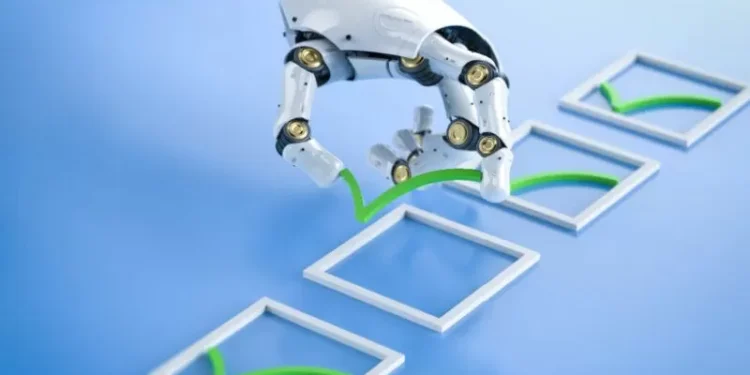Artificial Intelligence (AI) has been making waves across various industries, and the field of education is no exception. One of the areas where AI is making a significant impact is in the realm of skills assessment. Traditional methods of assessment, such as written exams and assignments, have proven to be time-consuming and labor-intensive for both educators and learners. However, with the rise of AI, skills assessment has been transformed, making it more streamlined, efficient, and personalized. Let’s take a closer look at how AI is revolutionizing skills assessment and the benefits it brings to the table.
Streamlining Question Creation
One of the most significant challenges faced by educators is creating relevant and effective assessment questions. This process involves significant time and effort, and even then, there is no guarantee that the questions will accurately assess a student’s understanding of a particular skill. With AI, this task has become much more efficient and accurate.
AI algorithms can analyze data from various sources, such as textbooks, journals, and online resources, to generate relevant and diverse assessment questions. These questions can then be customized to suit the specific skills and learning objectives of a particular course. This not only saves time for educators but also ensures that the questions are tailored to the students’ needs, providing a more accurate assessment of their skills.
Enabling Adaptive Learning
Another significant advantage of AI in skills assessment is its ability to enable adaptive learning. Traditional assessments have a one-size-fits-all approach, where all students are given the same set of questions regardless of their individual strengths and weaknesses. This can be demotivating for students who may find certain topics challenging, leading to a lack of engagement and lower performance.
AI-powered assessments, on the other hand, can adapt to the individual learning needs of each student. By analyzing their responses to previous questions, the system can identify areas of strength and weakness and provide personalized assessments that cater to each student’s specific needs. This not only gives students a sense of control over their learning but also helps them improve their weaker areas, leading to a more effective and personalized learning experience.
Automating Grading
Grading is a time-consuming and tedious task for educators, especially when it comes to assessing skills. It involves manually checking and evaluating each student’s response, which can be prone to bias and human error. With AI, grading is automated, making the process faster, more accurate, and fairer.
AI-powered assessments use natural language processing and machine learning algorithms to evaluate students’ responses. These algorithms can understand and analyze the complex language used in different skill-based questions and provide accurate feedback and scores. This not only saves time for educators but also ensures consistent and unbiased grading, providing a fair assessment for all students.
Saving Time while Enhancing Training Quality and Personalization
Overall, AI has streamlined the entire process of skills assessment, saving time and effort for both educators and students. With AI, educators can focus on creating effective training materials and delivering personalized instruction, rather than spending hours creating and grading assessments. This, in turn, leads to a better quality of training and a more personalized learning experience for students.
Moreover, AI-powered assessments can generate real-time data and insights into students’ performance, allowing educators to identify and address any learning gaps promptly. This data can also be used to improve the quality of the training material and adapt it to better suit the students’ needs, leading to a more effective and engaging learning experience.
In conclusion, AI is transforming skills assessment by streamlining question creation, enabling adaptive learning, and automating grading. It not only saves time and effort but also enhances the quality and personalization of training. With the rise of AI, skills assessment is no longer a tedious and time-consuming task but a seamless and efficient process that benefits both educators and learners. As we continue to witness the advancement of AI, it is safe to say that the future of skills assessment is bright, and the possibilities are endless.
This post was first published on eLearning Industry, a leading online community for eLearning professionals. With over 650,000 members worldwide, eLearning Industry provides a platform for experts to share their knowledge, insights, and best practices in the field of eLearning. It is a great resource for educators, instructional designers, and anyone interested in the latest trends and developments in the world of eLearning.
In conclusion, AI is transforming skills assessment for the better, and its impact is already being felt in the education sector. As educators, it is essential to embrace this technology






